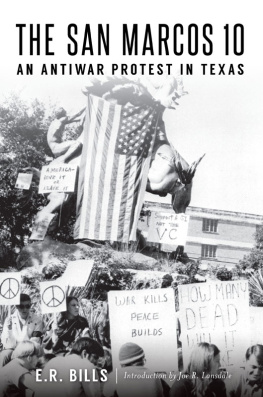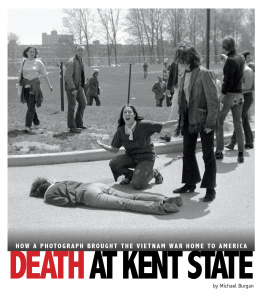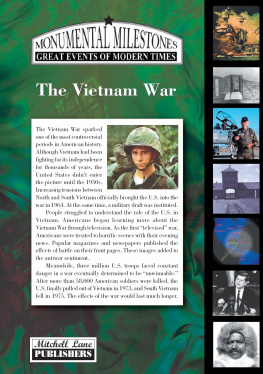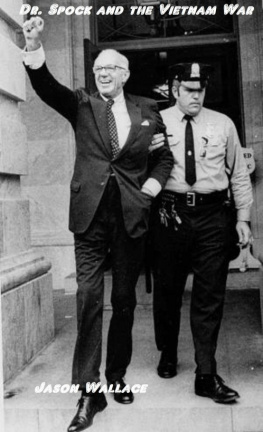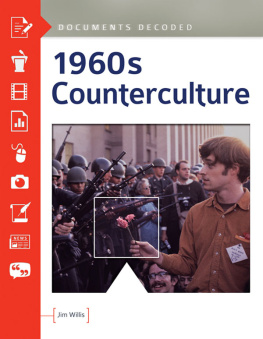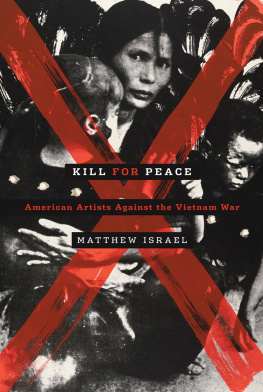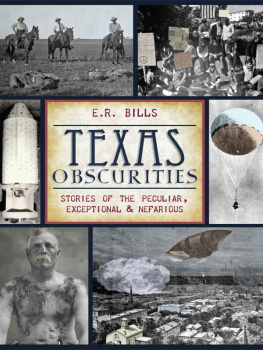


Published by The History Press
Charleston, SC
www.historypress.com
Copyright 2019 by E.R. Bills
All rights reserved
Front image courtesy of the University Archives, Texas State University.
First published 2019
ISBN 978.1.439668.214
Library of Congress Control Number: 2019945055
print edition ISBN 978.1.467141.277
Notice: The information in this book is true and complete to the best of our knowledge. It is offered without guarantee on the part of the author or The History Press. The author and The History Press disclaim all liability in connection with the use of this book.
All rights reserved. No part of this book may be reproduced or transmitted in any form whatsoever without prior written permission from the publisher except in the case of brief quotations embodied in critical articles and reviews.
I would like to be able to love my country and still love justice.
Albert Camus
This attempt to tell the story of the San Marcos 10 is dedicated to the namesake participants and all the other contrarians along the way.
CONTENTS
ACKNOWLEDGEMENTS
I received an excellent education at (Southwest) Texas State University. I had top-flight professors and instructors whose erudition and wit I still only aspire to match, much less demonstrate my worthiness of. I was also surrounded by talented friends and classmates (and the occasional antagonist), who challenged and inspired me more than they know. Below is a list of some of these exceptional folks. I am indebted to them all.
Roland Alvarado, Susan Ayala, Paul Beck, Rebecca Bell-Metereau, Lisa Jones Bock, Scot Courtney, Quita Culpepper, Patricia A. Deduck, John Demarree, Jody Dodd, Dane Fayle, Jim Garber, David Hiott, Debbie Hiott, R.B. Jager, Jerry Keir, Edgar Laird, Vincent Luizzi, Donald Olson, Norman Peterson, Paula Renfro, David Rice, Gary Rice, Scott Ritter, Reggie Rivers, David Robledo, Rachel Sanborn, Rene Sauceda, Darryl Smyers, Todd Snider, Theron Stimmel, Dale Stockstill, Jerome Supple, Brian H. Thornton, Mark Todd, Evelyn Tolbert, Bobby Wellington, Miles Wilson and many others.
INTRODUCTION
Civil disobedience has a long history. Among prominent activists who have used it as a way to object to something they felt was wrong, or just plain unfair, are Henry David Thoreau, Gandhi, Martin Luther King, Rosa Parks, Susan B. Anthony and Muhammad Ali. We can add the San Marcos 10 of Southwest Texas State University (now known as Texas State University) to that list.
The 10 were among a large number of Americans who had come to believe the war in Vietnam was wrong. I was also among those who felt that way, and I still do. Its interesting to note that the 10, and those like them, were demonized at the time, but history has since proven that their objections to that war were well-advised. Vietnam was once touted as a key piece of the Domino Theory, which was the idea that, like dominoes that are stacked and pushed, the fall of one country to communism would lead to the fall of others into the maw of communism. Vietnam itself wasnt, in actuality, so much a precariously stacked domino as it was a straw man. It was presented as an absolute necessity for the maintenance of world stability, but in reality, it was an excuse to pursue foreign resources, an endeavor that led to the useless deaths of approximately fifty-four thousand American soldiers.
Much of the support for the war came from those who had lived through World War II, a war that was universally considered to be, warts and all, a necessary war. And it was. There are reasons to fight in wars, but they should be rare in their necessity. Vietnam was false from the beginning, and it was certainly false from the time of the Gulf of Tonkin incident, when American destroyers were supposedly attacked by the communist government of Vietnam. This event proved to be not only a suspicious claim but also a fraudulent one that was ultimately used to escalate the United States presence in Vietnam and to pursue a full-scale war.
E.R. Bills has sliced and diced with precision the antiwar protestors who were labeled as the San Marcos 10. They were part of a larger number of demonstrators who voiced their disagreement with U.S. policy in Southeast Asia the day after the first news reports of the infamous My Lai Massacre were released. The butchering of unarmed and non-threatening South Vietnamese was a kind of knee-jerk response from a group of frustrated and demoralized American soldiers who were looking for vengeance. Unarmed civilians, including women, children and the elderly, were slaughtered in an act equal to those of the Nazis during World War II, but this time, the killers were none other than members of the United States military.
In many ways, the My Lai Massacre was the last straw for the Vietnam War, at least as far as blind support went. However, the war limped along for a few more years, growing more unpopular as time went on, until it finally ended in 1973 in what was called peace with honor. The American military abandoned the war in a less than honorable way, allowing Vietnam to eventually become not only a United States global trade partner but also a tourist destination, containing Vietnam War sites among its attractions. Ironically, capitalism drives Vietnams economy more than the much-feared falling domino of communism ever did, and we help them pay for it.
As for the San Marcos 10 protest, the dean of students, Floyd Martine, along with an entourage of redneck reactionists in tow, showed up to demand their vigil end. Martine threatened the participants with dismissal from the university, in spite of their demonstration being peaceful. Most of the anti-Vietnam objectors dispersed, but ten of them remained. This is their story and the story of the history that surrounded them, the history they helped shape.
Joe R. Lansdale
SAN MARCOS 10
I didnt get my ideas from Mao, Lenin, or Ho.
I got my ideas from the Lone Ranger.
Jerry Rubin, American antiwar activist and 1960s counterculture icon
When Kenny Rogers and the New Edition rolled through the San Marcos area in 1968, Rogers, a Houston native, had just landed his first Top 10 hit on the Billboard Hot 100 chart with Just Dropped In (To See What Condition My Condition Was In). A catchy nod to psychedelic drug use in the 1960s, the song peaked at number five and would go on to loom large in a bowling alley dream sequence in The Big Lebowski thirty years later. But, in 1968, the 1960s still hadnt gained much of a foothold at Southwest Texas State College (now known as Texas State University), so the Student Center gave away over 1,400 tickets for the on-campus show, and most of them probably went unused.
When Rogers and the New Edition toured the country a year later, however, they were singing a different tune. It was called Ruby, Dont Take Your Love to Town, and it climbed to number six in the Billboard Hot 100. The song was about a paralyzed American soldier confined to a bed or wheelchaira product of that crazy Asian warwho watched helplessly as his young wife painted her face and went out looking for what he assumed was extramarital companionship. If Rogers and the New Edition had made a stop in the San Marcos area that year, the show probably would have sold out. San Marcos and Texas State were still conservative backwaters when compared to other parts of the country, but by the end of 1969, that would begin to change.
Next page
